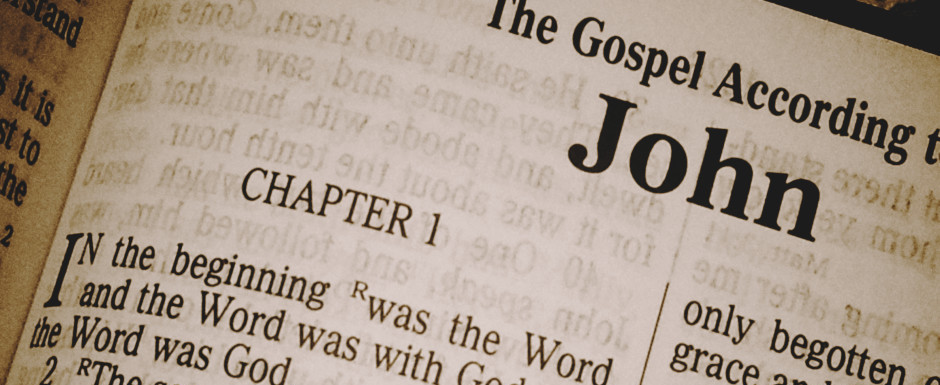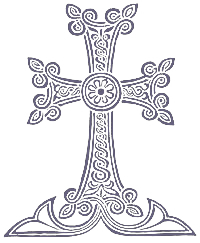Feast of the Catholic Church of Holy Etchmiadzin

THE SUNDAY MESSENGER
June 19, 2022
Feast of the Catholic Church of Holy Etchmiadzin
Father’s Day
COVID UPDATE: Based on the recent increase in Covid infections, Montgomery County is recommending that masks be worn indoors in all public areas and to maintain social distance.
Scripture and Feast Day Notes
From Today’s Readings
Proverbs 9:1-6 Wisdom has prepared a banquet, mixing the wine and preparing the food, even hewing the seven pillars with her own hands. This is a sacred space of abundance, leading to life (v 6). The bread (although some translations say ‘food,’ the Hebrew means ‘bread’) and wine invite comparison with the communion meal and the new covenant of Jesus. She welcomes all to share in the feast and leave behind their “simple ways” to live more fully in new understanding. These verses recall the Parables of the Wedding Feast (Matthew 22:1-14) and the Great Banquet (Luke 14:15-24) in which invitations are sent out for a great feast. Discuss/reflect; Verses 7-9 have special meaning for our times. Where in today’s headlines might Wisdom’s call to “walk in the way of understanding” help heal our divisive politics and the social movements marked by harsh rhetoric, intolerance, and even hate? These proverbs were written over 2500 years ago. Do we still see instances of insult when “mockers” are confronted?
Zec 3:7-4:9 In Zechariah’s vision, the Lord tells the High Priest Joshua to walk in His ways, promising to provide a Branch, symbol of the Messiah and of fruitfulness, as well as a stone with seven eyes, symbol of perfect knowledge. There will be prosperity such that neighbors can sit together among healthy vines and fig trees. The prophet sees a vision of a seven-branched lampstand with a bowl, seven channels to the bowl, and two olive trees feeding oil into the channels – all symbols of abundance and light. But Zerubbabel, charged with rebuilding the tabernacle, will be able to accomplish it not through these physical props but through God’s Spirit (just as the Church will one day be established). This was the Spirit – the breath – the ruach of the Lord which worked in creation (Genesis 1:2), at the Red Sea (Exodus 15:8, 10), and that gave life to dead bones (Ezekiel 37:1-14).Discuss/reflect: When told your strength and talents alone (v 6) won’t give you your best life, the one that truly glorifies God, how do you respond?
Hebrews 9:1-10 In an impressively detailed description of vessels and priests in the ancient tabernacle, the writer affirms that none of these Levitical rituals can restore the worshipper to spiritual wholeness. Rituals are external actions, and they cannot change the heart. The Holy Spirit, driving force of the New Covenant, had yet to show the way. Discuss/reflect: Why were their “gifts and sacrifices not able to clear the conscience of the worshiper” (v 9)? See Amos 5:21-27 for further insight.
John 10:22-30 During the Feast of Hanukkah, the Jews who have gathered in Jerusalem ask Jesus to tell them plainly whether He is the Christ. Jesus declares that He has told them this before, but they don’t believe. “You are not my sheep; my sheep know my voice and follow me” (vv 25-27). Jesus, the Good Shepherd, tells us that everything depends on belonging to him. Never does our status before God depend on what we know, what we feel, or on what we accomplish. It depends on one thing only: that we are known by the shepherd: Amidst all the other voices that evoke fear, make demands, or give advice, the voice of the good shepherd is a voice of promise — a voice that calls us by name and claims us as God’s own.
Discuss/reflect: Do you honestly feel you belong to Jesus? If you did, His voice would be as comforting as a shepherd’s to his flock. What might you do to feel this way?
Etchmiadzin, the Universal Church, and The Pit
The Feast of the Universal Church of Holy Etchmiadzin (Կաթողիկէ Եկեղեցւոյ Սրբոյ Էջմիածնի Տօն) is celebrated on the second Sunday of Pentecost, following the Saturday celebrating the deliverance of St. Gregory the Enlightener from the pit. The building of the Cathedral of Etchmiadzin is a significant turning point in the life of the Armenian people in that the Holy See was built over the site of a pagan temple. Thus, a true conversion and penitential event took place as Christianity literally and symbolically displaced pagan beliefs with a new worldview, the center of which is God, the Creator, and his only-begotten Son, Jesus Christ. The feast is a celebration of both the universal Church and the Church of the Armenian people who belong to the one Body of Christ. Holy Etchmiadzin has always been an extension of the universal Church established by the Apostles (Ephesians 2:19-22) as we recite in our Creed: “We believe also in only one universal and apostolic holy Church.”
The week prior to the Feast of Holy Etchmiadzin recalls early Christianity in Armenia. Following the evangelistic efforts of the “First Illuminators,” Sts. Thaddeus and Bartholomew, the faith in Armenia grew due to the early presence of other Christians, including three remarkable women, St. Santookht (a student of St. Thaddeus, and the first Armenian martyr), Sts. Gayane and Hripsime, as well as Sts. Voski and Sookias and their respective companions and disciples, all of whom find their origins outside of Armenia. Eventually, it was the missionary efforts and heroic evangelization of St. Gregory the Enlightener, a Parthian bishop taught and ordained in Cappadocia.
Are we following the example of Sts. Gayane and Hripsime? Like them, are we consistently faithful, enduring suffering, doing the work of the evangelist, and fulfilling our ministry? (II Timothy 4:5) Does the story of St. Gregory inspire us only as patriotic Armenians with ancestral pride, honoring our historical heritage, or does it compel and change us as Christian Armenians to do the work of Christ in this world, to endure suffering as we are cast aside, rejected, experience hunger, sickness, violence, and anxiety in the dark, lonely pits of life? What “pit” do we find ourselves in today? While we find ourselves in the darkest of “pits,” is our fear and doubt displaced with faith and peace, are we converted and sustained by God’s mercy and grace, and as a result do we bring healing and conversion to others? Pray with the Psalmist:
Whither shall I go from thy Spirit?
Or whither shall I flee from thy presence?
If I ascend to heaven, thou art there!
If I make my bed in Sheol, thou art there!
If I take the wings of the morning
and dwell in the uttermost parts of the sea,
even there thy hand shall lead me,
and thy right hand shall hold me.
If I say, “Let only darkness cover me,
and the light about me be night,”
even the darkness is not dark to thee,
the night is bright as the day;
for darkness is as light with thee.
(138/139:7-12)
COFFEE HOUR: The Coffee Hour today is being sponsored in loving memory of Manya Kocharyan by her children and grandchildren. All are welcome.
MEN‘S CLUB NEWS – The JUNE 2022 “200 CLUB” drawing was completed on 6/5/22. You can see the results on our HTAC Website. Click on: Organizations, Men’s Club. The tickets for the next season (2022-23) will be mailed out in August. –Thank you for your support!
ATTENTION GRADUATES!
The next issue of the LOOYS will feature our graduates (all levels) and we invite you to submit your own details for inclusion. Write-up should include: full name, parents’ names, name of institution, grade level or degree achieved, activity involvement (church or school), and future plans (further education/work/other). Please include a picture (in high resolution color), if possible. Everything should be sent to choirboss@hotmail.com by July 15, 2022.
A Song and Dance Story
From folk music to classical to traditional ashugh, Artsvaberd Choir has been charming audiences for the past five years, helping them better understand Armenian song and dance. The Artsvaberd Choir started in 2016 as part of FAR’s Breaking the Cycle of Poverty Program (BCPP), as part of the project’s extracurricular program, which offers outlets to children in rural areas who often have none. The choir group consists of 45 students who attend lessons twice a week. Their recent 5th-anniversary concert called “Us and Our Songs” told the story of Armenia’s national song and dance.
“It was FAR who helped us and provided the kids with the basics for the lessons, like sheet music, and now, thanks to FAR, my students have learned and built their inner confidence,” said choir instructor Anna Avetyan. Such extracurricular initiatives are vital to building community and enriching the lives of youth. To support FAR’s integrated programs, consider donating to FAR today. To read more, go to: https://www.farusa.org/post/a-song-and-dance-storyCOUNTRY STORE – We invite you to come visit us after church most Sundays. See Liz or Jeanette. If you wish to place an order for pickup, contact Lorraine Damerjian @ 215-572-8465, and she can help you with that.
Seeking Part-time Organists – the Choir of Holy Trinity is looking for multiple talented musicians who would be seriously interested in playing the organ for the Sunday morning Divine Liturgy (Badarak) on a rotating schedule. Organ lessons will be provided to the interested candidates, along with one-on-one direction from a senior choir person. For further information, contact Karinne Andonian @ karinne.hov@gmail.com.

